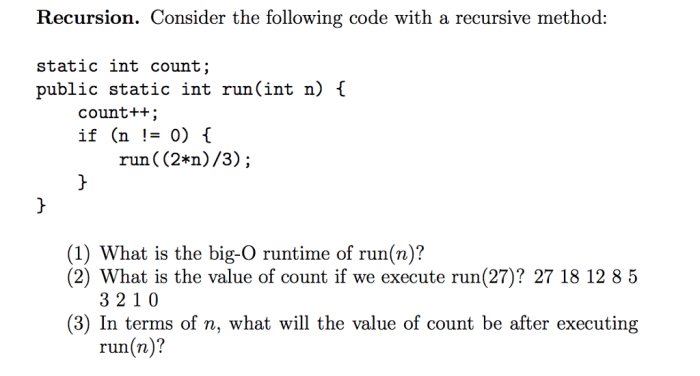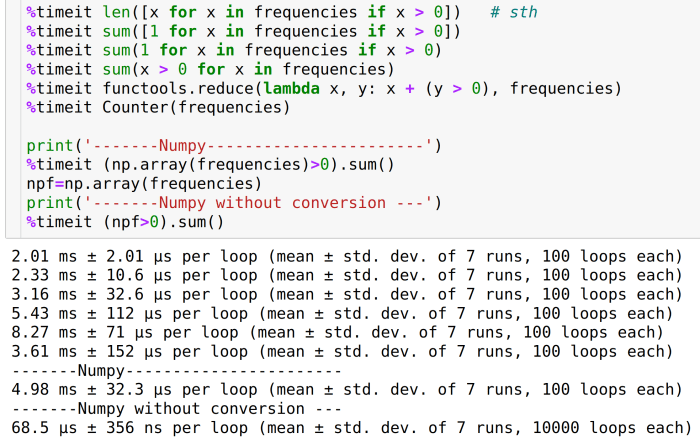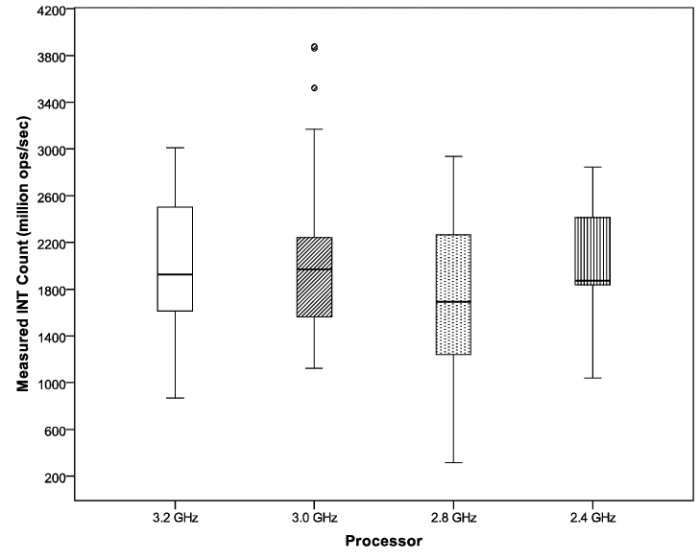Write a statement that declares an int variable named count – At the heart of programming lies the art of variable declaration, a crucial step in assigning meaning to data within code. Among the diverse data types, integers hold a prominent place, and declaring an int variable named “count” is a fundamental task.
This article delves into the syntax, usage, and best practices associated with declaring an int variable named “count,” empowering programmers with the knowledge to effectively manage and manipulate numerical data.
Declaring an int variable named “count” serves a specific purpose in programming, enabling the tracking and manipulation of numerical values. The variable name “count” itself conveys its intended use, providing clarity and context within the code. By adhering to meaningful naming conventions, programmers enhance code readability and maintainability.
Declaring an Int Variable Named Count: Write A Statement That Declares An Int Variable Named Count

In programming, declaring an int variable named count is essential for keeping track of numerical data and performing counting operations. It provides a way to store and manipulate integer values, which represent whole numbers, within a program.
Using a meaningful variable name like “count” enhances code readability and understanding. It clearly conveys the purpose of the variable, making it easier for developers to comprehend the program’s logic and intent.
Syntax and Usage
The syntax for declaring an int variable named count in Java is:
int count;
Here, “int” specifies the data type, which is a 32-bit integer, and “count” is the variable name. The semicolon (;) at the end of the line is mandatory.
The int data type can hold integer values within a specific range, depending on the programming language and system architecture. In Java, it can represent values from -2,147,483,648 to 2,147,483,647.
The scope of the count variable refers to the part of the program where it can be accessed and used. The lifetime of the variable is determined by its scope and the program’s execution flow.
Examples and Applications
Here are some examples of how an int variable named count can be used:
- Counting the number of items in a list or array
- Tracking the number of iterations in a loop
- Storing the total number of occurrences of a particular value in a dataset
- Calculating the average or sum of a set of numbers
For instance, in the following Java code snippet, count is used to keep track of the number of students in a class:
int count = 0;
for (Student student : students)
count++;
System.out.println("Total number of students: " + count);
Advanced Usage, Write a statement that declares an int variable named count
Advanced techniques for using an int variable named count include:
- Initializing the count variable with a specific value
- Incrementing or decrementing the count variable using operators
- Using count in conjunction with loops, arrays, and other data structures to perform complex counting operations
For example, the following code snippet uses count to initialize an array of size 10:
int[] numbers = new int[count];
Best Practices and Considerations
Best practices for declaring and using int variables named count include:
- Choose a meaningful and descriptive variable name that clearly reflects its purpose.
- Initialize the count variable with an appropriate value if necessary.
- Avoid using global count variables to prevent conflicts and maintain code organization.
- Use appropriate increment and decrement operators to update the count variable accurately.
- Consider using other data types like long or BigInteger for counting large numbers.
Potential pitfalls to avoid when working with count variables include:
- Overcounting or undercounting due to incorrect incrementing or decrementing.
- Overflow or underflow errors when dealing with large or small numbers.
- Using count variables in inappropriate contexts or for unintended purposes.
Key Questions Answered
What is the purpose of declaring an int variable named “count”?
Declaring an int variable named “count” allows programmers to create a named storage location for numerical data, facilitating the tracking and manipulation of integer values within a program.
Why is it important to use a meaningful variable name like “count”?
Using a meaningful variable name like “count” enhances code readability and maintainability. It provides context and clarity, making it easier for programmers to understand the purpose and usage of the variable at a glance.

